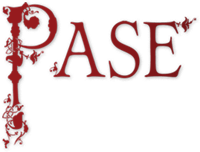Table of Contents
Top of page
Discussion
Bibliography
Forms
Distribution Map
Property List
People of this Name
Bottom of page
Cus
Male
DWP
2 of 5
Discussion of the name
Cus is probably an Old English masculine name. A weak form Cus(s)a is known from eighth-century Mercian contexts and, as von Feilitzen (1937: 219-20) noted in his discussion of the name, both this and the strong form Cus are evidenced from place-names (e.g. Cusanweoh, S 235). The lack of clear evidence of the names’ continued use as late as the eleventh century led von Feilitzen, quite rightly, to suggest the possibility that a Scandinavian origin such as Old Norse Kúsi could be sought; but such a name is not evidenced from English contexts, no final occurs in the DB forms of Cus and, on balance, the place-name evidence tips the balance of probability in favour of the Old English interpretation of the DB forms (which occur in association with people whose names are of both OE and Scandinavian origin).The only entry in the PASE corpus is for Cus 1, a catch-all category for occurrences of this name in DB, although there are also two PASE entries for Cusa and one for Cussa; none of the Scandinavian forms suggested by von Feilitzen occurs in the PASE corpus.
Bibliography
von Feilitzen 1937: Olof von Feilitzen, The Pre-Conquest Personal Names of Domesday Book, Nomina Germanica 3 (Uppsala: Almqvist and Wiksells, 1937)Forms of the name
Spellings in Domesday Book: CusForms in modern scholarship:
von Feilitzen head forms: Cus
Phillimore edition: Cus
Alecto edition: Cus
Distribution map of property and lordships associated with this name in DB
List of property and lordships associated with this name in DB
Holder 1066
| Shire | Phil. ref. | Vill | DB Spelling | Holder 1066 | Lord 1066 | Tenant-in-Chief 1086 | 1086 Subtenant | Fiscal Value | 1066 Value | 1086 Value | Conf. | Show on Map |
|---|---|---|---|---|---|---|---|---|---|---|---|---|
| Suffolk | 6,44 | Cransford | Cus | Cus 'of Cransford' | Eadric of Laxfield | Robert Malet | Walter fitzAubrey | 0.75 | 1.00 | 1.25 | C | Map |
| Totals | ||||||||||||
